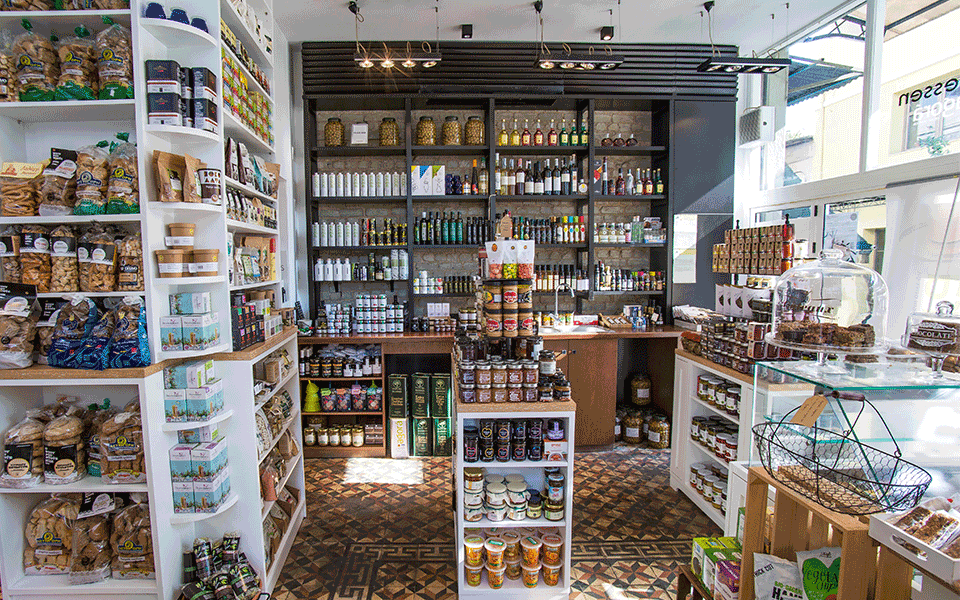Ιn contemporary Thessaloniki, many locals still prefer to do their food shopping the traditional way – at independent stores that specialize in certain products. It’s not a chore, but a highlight of their week – a time to socialize, sample new things and see what’s on offer. Join them to get a look at how the community really lives and eats in this delicious, food-forward city.
Serious shopping trips often start out amid the charming chaos of the Kapani Market. Fish, meat and poultry vendors hawk their fresh wares with good cheer. Dry goods, herbs and spices spill out of bins, and glistening seasonal produce is piled high. You’ll find the olive vendors in the big kiosk on the western side of the market, along Vlali Street; they’ll be glad to vacuum-pack your selection.
The area around the market is full of specialty shops. Halkiadakis carries Cretan products, including special seasonal produce. Try goat’s-milk cheeses like tangy fresh myzithra, or some apaki – a smoky cured pork. They sometimes even have the aromatic, sherry-like marouvas, a wine that’s beguiling with cheeses.
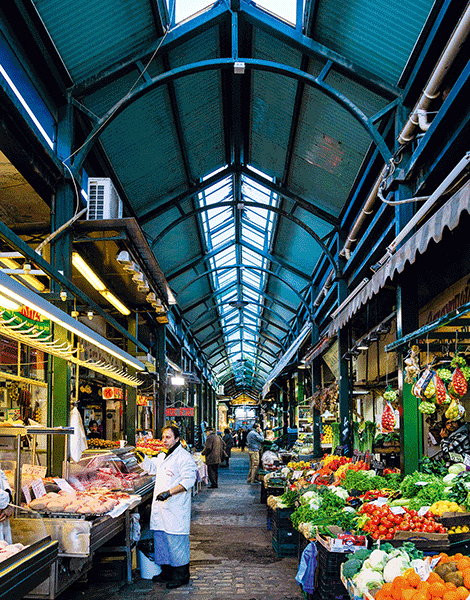
© Perikles Merakos
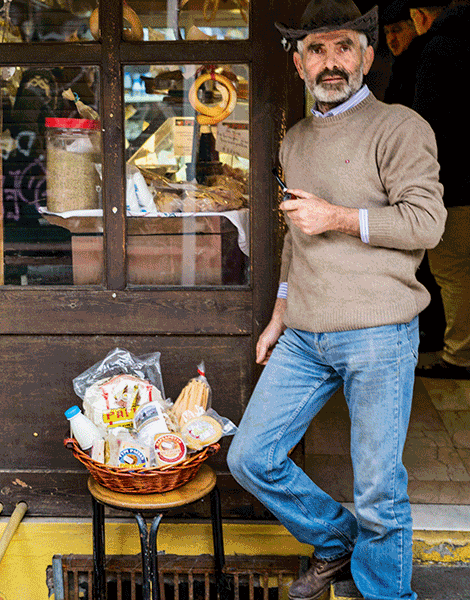
© Perikles Merakos
Family-owned Papageorgiou are specialists in exotically flavored loukoumia (the Greek word for Turkish delight), as well as syrup-preserved fruits, nuts, rose petals and even baby vegetables, traditionally served to guests from saucers with a tiny spoon, with a tall glass of water on the side. They’re delicious spooned over thick Greek yogurt, too.
Even though the area around the old commercial square is Thessaloniki’s latest hotspot for new bars and restaurants, it still has plenty of wholesalers selling traditional supplies like oil barrels, feta tins and canning jars. The neighborhood’s food-centered past and chic present converge at Olicatessen, purveyors of fine artisanal products from all over Greece. It’s a splendid source for cheeses and cold cuts, traditional hand-rolled pastas, honeys, wines, oils, biscuits, teas, condiments and preserves, and can treat you to a more in-depth culinary experience via one of its guided tastings or seminars.
For sesame lovers, a stop at Halvas Giannitson is a must. Here, you’ll find hand-kneaded halva (made according to an old family recipe) that comes in a number of new flavors.
Pantopoleio tis Thessalonikis gets its name from the Greek word for “general store” because here you really can find everything – it’s stacked to the ceiling with specialty products from all over Greece and the world. The deli case of cold cuts, cheeses and appetizers looks like an edible museum.
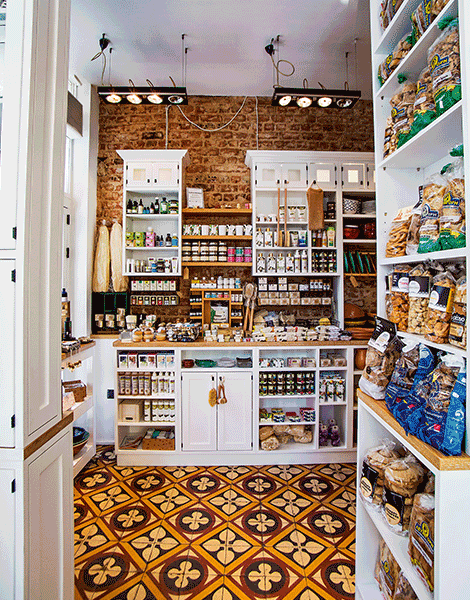
© Nicolas Economou
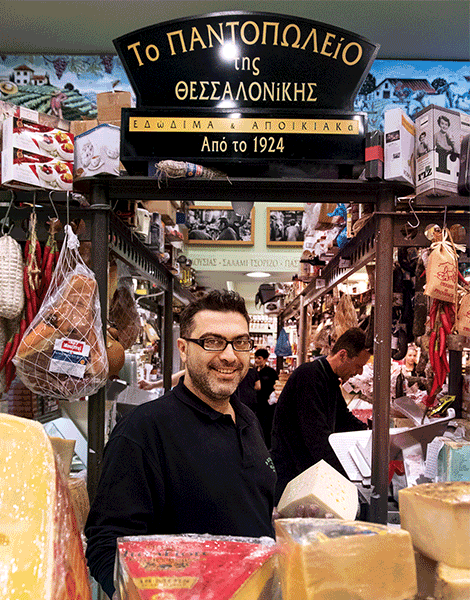
© Alexandros Avramidis
The cobblestone alleys around Athonos Square offer a much more low-key, but just as traditional, shopping experience as the Kapani Market. Ragian is dedicated to preserving a key part of Thessaloniki’s culinary culture: when the Greeks of Asia Minor filled the city during the population exchange of the 1920s, they brought their specialties with them. Ragian has the cheeses, butters, creams, yogurts and dairy drinks these herding cultures perfected, as well as their wheat products, including filo, dumplings and rustic pastas.
Nearby you’ll find Ellinikon, specialists in organic and fresh products, as well as some more classic greengrocers stacked with the best of the season.
Along pedestrianized Papamakrou, there are a few shops selling traditional kitchenware, such as wooden spoons and paddles, bread peels and carved wooden stamps for embossing liturgical loaves.
For more artisanal food shopping in a beautiful space, visit Ergon Agora. Products from the simple (quality chickpeas) to the glamorous (white truffle in olive oil) from the finest small and independent producers from all over Greece have been packaged at source in Ergon’s unique style.
Finally, few products are as strongly associated with Greece as feta. This snowy-white tangy cheese is so essential and fundamental to Greek cuisine that its name simply means “slice”; it’s celebrated in style at the feta bar Mia Feta. Try different varieties and shop from a full selection of feta-based delights, all from the establishment’s own dairy in Grevena.

